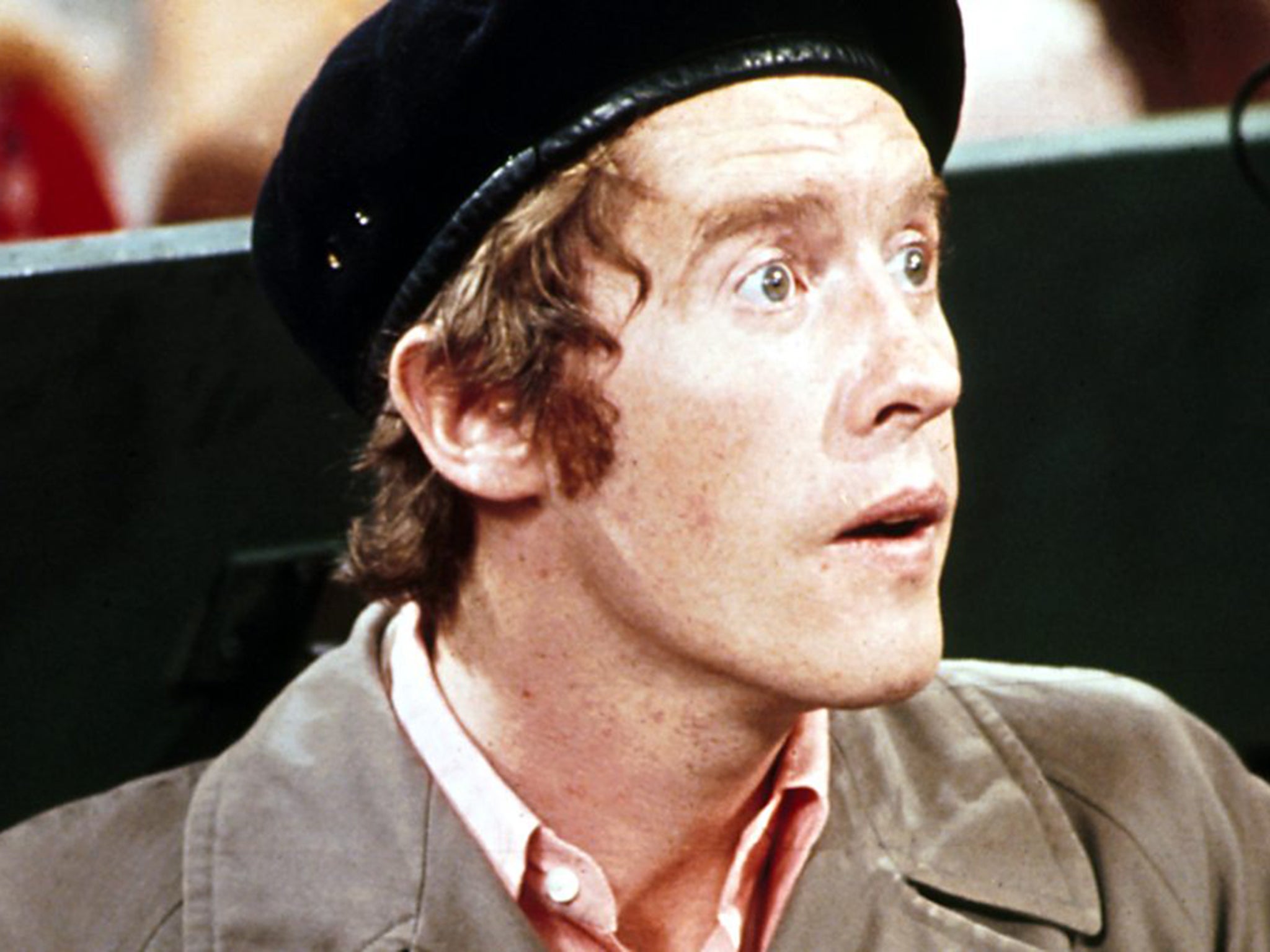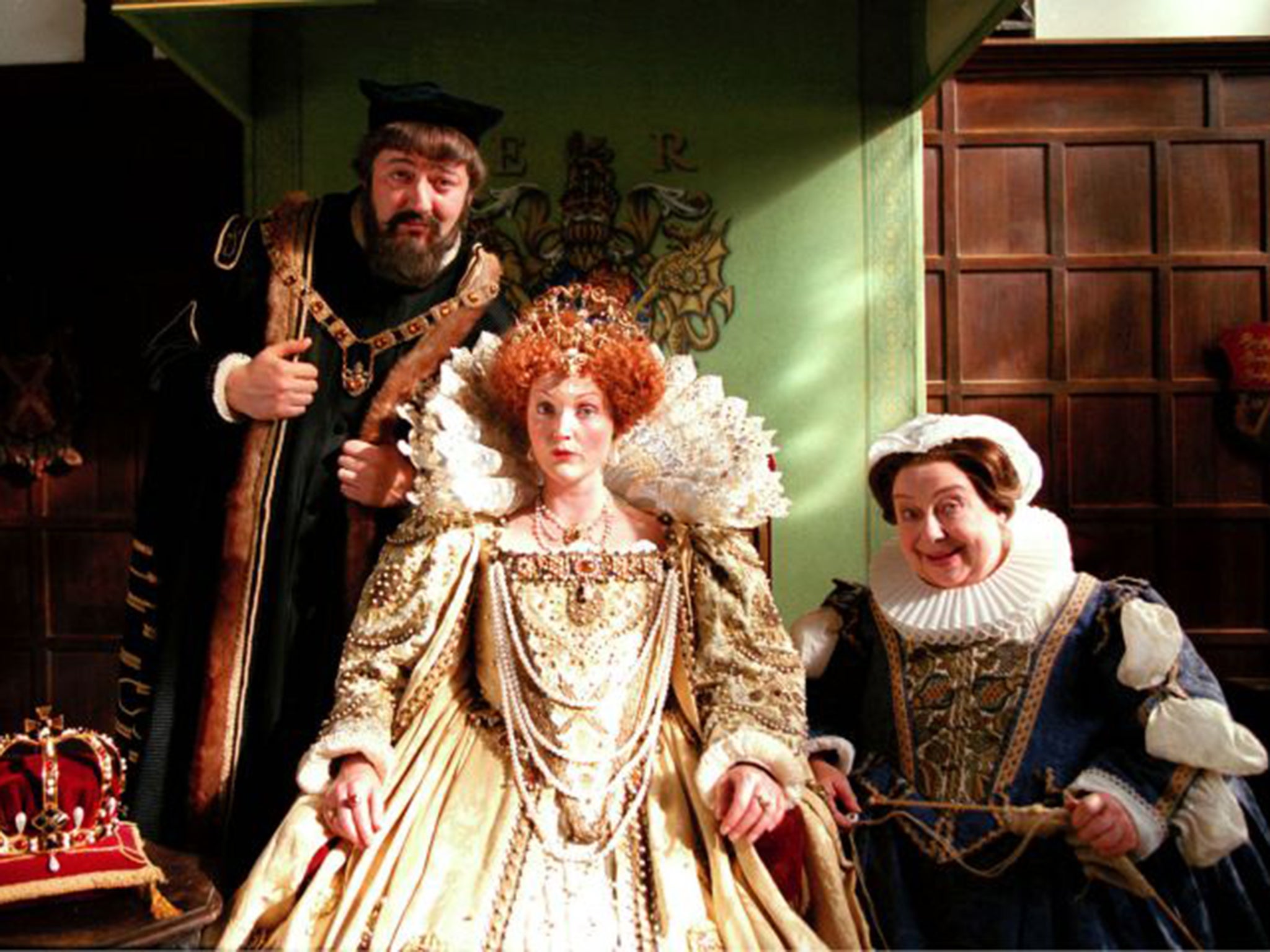Frank Spencer’s rebirth shows how some things are best left dead and bereted
The BBC’s one-off revival of the cack-handed character for Sport Relief is up against the lessons of artistic history

Your support helps us to tell the story
From reproductive rights to climate change to Big Tech, The Independent is on the ground when the story is developing. Whether it's investigating the financials of Elon Musk's pro-Trump PAC or producing our latest documentary, 'The A Word', which shines a light on the American women fighting for reproductive rights, we know how important it is to parse out the facts from the messaging.
At such a critical moment in US history, we need reporters on the ground. Your donation allows us to keep sending journalists to speak to both sides of the story.
The Independent is trusted by Americans across the entire political spectrum. And unlike many other quality news outlets, we choose not to lock Americans out of our reporting and analysis with paywalls. We believe quality journalism should be available to everyone, paid for by those who can afford it.
Your support makes all the difference.The news that veteran actor Michael Crawford will shortly be reprising his celebrated comic role of Frank Spencer – he of the gormless grin, the tightly clasped mackintosh and jammed-down beret – in a one-off special for next month’s Sport Relief Night stirred mixed emotions.
On the one hand came the recollection that Some Mothers Do ’Ave ’Em, in which Frank cack-handedly starred, was quite funny back in its mid-1970s heyday. On the other lurked the thoughts that 1978, the date of the show’s final airing, was rather a long time ago, that Mr Crawford is a ripe 74 and that re-animating an entity that supposedly breathed its last in the world of Callaghan, Thatcher and the Winter of Discontent may trickier than it seems to the hopeful BBC executive who commissioned the piece.
“It will be an absolute joy to be reunited again with Frank," the 67-year-old actress said.
Sitcom Some Mothers Do 'Ave 'Em was first broadcast on the BBC back in 1973, running for three series.
Naturally, no such qualms occurred to the principal members of the cast. Crawford professed himself “thrilled and delighted” at his small-screen renaissance. Michele Dotrice, who portrays his on-screen wife Betty, remarked that it would be “an absolute joy” to be reunited with her fictive swain. Olympic cycling champion Sir Bradley Wiggins, also roped into the proceedings, has declared himself “a huge fan of Michael, so it’s an absolute honour to be asked to be involved alongside such an icon”. As to the sketch, we are promised that the eternally disaster-prone Frank will be embroiled in a series of “awkward situations”, culminating in an encounter with Sir Bradley in London’s Queen Elizabeth Olympic Park.

Hilarious as this may potentially be, anyone who remembers the original production can be forgiven for thinking that the most awkward situation of all will involve the undermining of the comic premise on which Some Mothers was originally built. Certainly the jokes tended to focus on such comedy staples as misunderstandings or straightforward physical ineptitude (Frank falling over things, clutching ladders as they fell away from windows, riding motorbikes into ditches and so on), but they were projected out of the relationship between Frank and his wife, a kind of twisted mother-son affair founded on the Frank’s extraordinary naivety.
The original Frank, it might be said, grew out of a time-honoured variety hall character: the gauche and inexperienced young man whose destiny is now being shaped and directed by a firm wifely hand. But a pensionable Frank? How is that emotional chemistry going to work?
None of which will matter in the slightest to the audience of Sport Relief Night, or to Crawford and Dotrice who are clearly itching to reboot their range of surprisingly durable catchphrases (interestingly, the phrase Some Mothers Do ’Ave ’Em survives in a lowlife-baiting Viz cartoon strip entitled Scum Mothers Who’d ’Ave ’Em?).
At the same time, comedians themselves occasionally note the aesthetic difficulties involved in transporting something so precisely located in time and milieu as a comedy routine into another era. The sight of the reformed Monty Python team sailing through the “Four Yorkshiremen” sketch a couple of years ago was not to everyone’s taste: age and absence – not to mention the baying of a nostalgia-hungry audience – had done something to the original’s charm.

Stephen Fry once offered a convincing explanation of why the cast of Blackadder, whose first series hit the screen only half a decade after Frank Spencer was retired, was unlikely to reconvene. Much of the humour, he said, arose out of the spectacle of youth masquerading as age, of young men and women crammed into exaggerated historical costumes and playing venerable and stately figures whose dignity they were constantly sending up. Doubtless a middle-aged Fry playing Queen Elizabeth’s adviser Lord Melchett would still be funny but he would probably not be as funny as his 30-year-old predecessor. The same goes for Hugh Laurie in knee-breeches and waistcoat taking off the Prince Regent or Miranda Richardson in an expansive Tudor skirt threatening to cut off somebody’s head.
There are, of course, excellent reasons for the winching up from the vault and attempt to breathe new life into something presumed to have expired several decades before. One of them, inevitably, is economic but another is based on the optimistic conceptual thought that something that worked well in the past may possibly work well in the future. Much of the evidence from art and literature, alas, suggests this isn’t the case and that the prudent operator leaves the bygone character squarely on the shelf.
When Anthony Powell, having finished his 12-volume A Dance to the Music of Time (1951-1976), resisted the siren voices urging him to create further opportunities for his characters he probably had at the back of his mind his friend Evelyn Waugh, whose Basil Seal Rides Again (1963) is a largely unsuccessful attempt to transfer the rakish ne’er do well of his 1930s novels Black Mischief and Scoop into the age of Harold Macmillan.
Martin Amis sped down exactly the same creative dead-end in his efforts to carry forward some of the characters from his early novels Dead Babies (1975) and Success (1978): the baggage was too heavy, the difficulties too great and the project was abandoned. As for the writers who goad their characters on from one sequel to another, few have the tongue-in-cheek circumspection of Anthony Burgess, who gave the final volume in his Enderby series the larky sub-title No End to Enderby. More common was the critical response to the 1980s James Bond novels of John Gardner which, had to skate over the unwelcome fact that Bond – first recruited to the Secret Services in 1938 – was by now well into his seventies.
Nowhere is the attempt to prolong something beyond its natural artistic lifespan more transparently a bad idea than in contemporary music. Do you go to see a band of reformed 1970s prog rockers to enjoy a musical experience or to slide luxuriously into a warm bath of nostalgia where the performers involved are, however well preserved and exuberant, in danger of becoming their own tribute act? The exemplary figure here, you always suspect, is Paul Weller. Once quoted to the effect that only the sight of his wife and children starving in the gutter would prompt him to reform The Jam, when further questioned on this point by a wistful interviewer in the recent About the Young Idea film tracking the group’s all-too-brief career, he clarified, “Categorically f***ing no.”
As someone who bought each Jam single on the day it came out and spent my undergraduate days attempting to replicate the Weller look, I reluctantly accept the wisdom of this judgement. The Jam were a young person’s band. The spectacle of a trio of late-fifty-somethings singing a number like “When You’re Young” would be too ironic to be borne.
On the other hand, the best rock concert I ever saw was the 2009 reunion of inimitable post-punk ensemble Magazine. Here, for some reason, the fact that the singer was 57 and the keyboard player in sight of his bus pass seemed not to matter. I was as ecstatic as any 17-year-old hollering for Taylor Swift. Who knows? Perhaps, against all expectation and aesthetic precedent, the world has been waiting for Frank Spencer to ride again.
Join our commenting forum
Join thought-provoking conversations, follow other Independent readers and see their replies
Comments